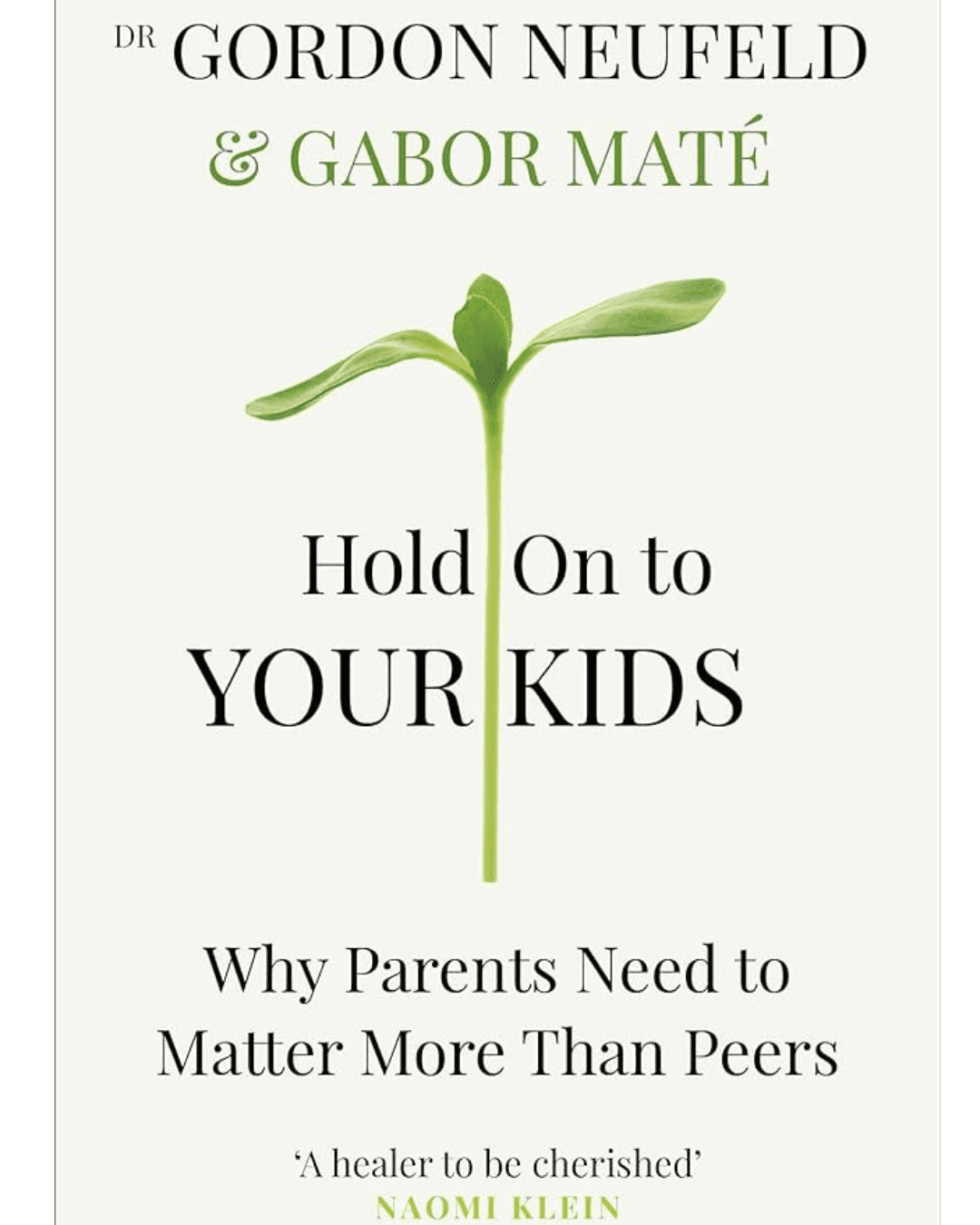Parenting in a World Full of Distractions
I remember a conversation I had with a friend over lunch. She told me she feels like she’s losing her child’s attention lately—how he gets easily distracted during conversations and seems to prefer spending time with his friends at school rather than with family.
“I realized it wasn’t just her child—it’s the way our society is wired today.”
Screens, social media, and the invisible pull of peers make it easy for the parent‑child connection to drift. As a parent, it’s natural to feel frustrated, even powerless, when it feels like the world is slowly pulling your child away.
I picked up Hold On to Your Kids by Gordon Neufeld and Gabor Maté out of curiosity—but it quickly became much more than a book. It’s a guide, a mirror, and at times, a wake‑up call. It doesn’t lecture; instead, it softly reveals why children drift toward peers and how parents can nurture the bond that truly matters—the one between parent and child.
Why This Book Matters Now More Than Ever
Neufeld and Maté remind us of a simple yet powerful truth: children are wired to attach to their parents first. But when peers take the lead, parental influence can fade, and small tensions can feel enormous. Rebellion, anxiety, and emotional distance aren’t signs of failure—they’re signals that the natural bond needs attention.
“Reading this book felt like someone handed me a map.”
It shows how to restore connection, notice subtle shifts, and actively keep your child close—without forcing it or creating guilt. You can also explore the authors’ official pages for more background:
- Gordon Neufeld’s overview → Neufeld Institute: Hold On to Your Kids
- Gabor Maté’s book page → Dr Gabor Maté: Hold On to Your Kids
And if you’d like to see the book in detail, it’s available through Amazon, where you can also read reviews from other parents and caregivers.
What You’ll Learn
- Attachment is everything: The bond you build shapes your child’s confidence, emotional resilience, and sense of safety.
- Peer influence isn’t harmless: Outside pressures can affect behavior, emotions, and decision‑making.
- Small, intentional steps work wonders: Listening, presence, and gentle guidance can rebuild closeness faster than you think.
My Personal Takeaway
What struck me most is how much the little moments matter. A shared laugh at breakfast, a quiet walk after school, or simply listening without giving advice—these tiny gestures are the glue that keeps your connection strong.
“Parenting isn’t about control—it’s about presence.”
Intentional, consistent, loving presence shapes the adults our children will grow into. Over the years on Evolving with Cheta, I’ve learned that connection often happens in these small, everyday moments—moments that quietly shape our children’s sense of security and belonging.
You can see more reflections on nurturing growth at home in this post: “How Motherhood Changed Me”.
Who Will Benefit From This Book
- Parents who want to feel close to their children again
- Teachers or caregivers seeking a deeper understanding of children
- Anyone who cares about raising emotionally healthy, confident, and resilient children
What Matters Most
Hold On to Your Kids isn’t just a parenting book—it’s a gentle guide for today’s world, showing how to keep our children close, both emotionally and mentally. If you’ve ever felt the subtle drift between you and your child, this book offers hope, practical guidance, and reassurance.
“Connection isn’t automatic—it’s something we nurture, one small moment at a time.”
A Gentle Invitation:
If you’re looking for ways to strengthen that bond, consider exploring this book or simply noticing one small moment of connection with your child today. Even a quiet gesture can leave a lasting impact.


2 thoughts on “Why Every Parent Should Read Hold On to Your Kids Today”
That’s what kids suffer today not being heard and can’t share problems with parents because they feel they will not understand or parents just jumping into conclusions
Yes @Ebuka, you are absolutely right. As parents, we need knowledge to raise our children better.
Every child wants to feel heard and seen.
Learning to pause, to see things from our children’s perspective will save us alot of trouble with them in the future.